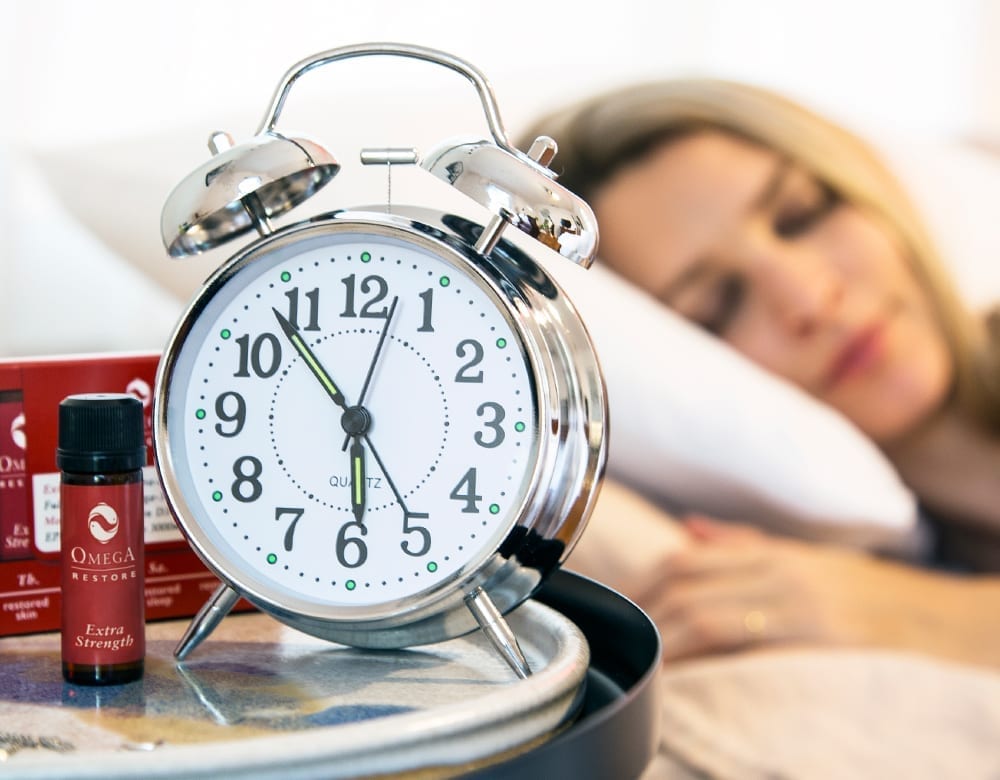Hot News about Hot Flashes and Omega-3 Fish Oil
Ok, I admit it. I’m a fish oil junkie. My addiction became evident when I had a minor surgery and had to ease up on my heavy-handed use of Omega CureTM. Normally I use three teaspoons a day, and it does the trick for the myriad of health issues that come with being a middle-aged woman. Now with reduced omega-3 consumption, I had to face on my own the nemesis of womanhood: hot flashes.
On behalf of the 80% of women who experience hot flashes during menopause, let me tell you: it feels like the thermostat on your inner furnace has been screwed up. The body floods the skin with sweat in an effort to cool down. One girlfriend lamented, “I feel like a cooked lobster.”
The frequency of hot flashes can vary from once a week to every 30 minutes, lasting anywhere between a few seconds and several minutes. Normally they happen at night, which kills a good night’s rest, which in turn generates quite a bit of stress. In addition to temperature changes and mood swings, some women complain about dizziness, and feel sick to their stomachs or have fast heartbeats.
What causes hot flashes in 45- to 55-year-old women? The answer: Their estrogen levels plummet.
Which brings me back to my original declaration: I am a fish oil junkie. I didn’t fully appreciate my Omega Cure addiction until my body started going through the “cold turkey” period. These so-called “mid-life changes” struck with a vengeance, keeping me awake with periodic hot and sweaty bouts.
For years, other women had mentioned to me that they were desperate to get their Omega Cure because it decreased the intensity and frequency of their hot flashes. But I never understood my own dependence on omega-3 until I lay in bed sweating, taking off my nightgown and putting it back on every five minutes. As I lay there, all those claims that omega-3 fish oil alleviates hot flashes and mood swings really began to matter to me.
Turns out my personal revelation is starting to be shared by scientists worldwide. A growing number of scientific accounts are starting to substantiate these anecdotal claims. For instance, a double-blind, placebo-controlled, randomized clinical trial (pretty much the most iron-clad kind of research you can do) published in November 2008 suggests that EPA (eicosapentaenoic acid), one of the omega-3s found in fish oil, could alleviate hot flashes. A total of 120 women were randomly assigned to either E-EPA (ethyl-eicosapentaenoic acid) or a placebo for eight weeks. After eight weeks of taking 1000 grams of EPA a day (just as much as in two teaspoons of Omega Cure), the women experienced half as many hot flashes as the placebo group.
Another study from Italy compared the benefits of using a soy isoflavone supplement compared to taking omega-3 fish oil capsules. While the soy isoflavone group had the same results as the placebo group, the fish oil users, again, experienced a steady decline in hot flash frequency.
The Italian researchers offered some insight as to why omega-3s might reduce hot flashes: “PUFAs [polyunsaturated fatty acids], particularly omega-3 fatty acids, could reduce hot flashes through their influence on neuronal [brain cell] membranes and/or the modulation of the neurotransmitter function and the serotoninergic system.” The “serotoninergic system” is the metabolic process that produces serotonin, a key mood-modulating chemical in the brain.
The scientists had described exactly what I experienced when I started hitting my Omega Cure bottle again. And boy – it sure feels delightful to have my inner thermostat regulated so I’m not pulling my nightgown on and off all through the night.
For More Restful Sleep and Energy
Experience the Omega3 Innovations difference for yourself with the most effective fish oil supplement on the market.
Buy Now
Sources:
1. The European Journal of Clinical Nutrition: “Menstrual pain in Danish women correlated with low n-3 polyunsaturated fatty acid intake.” July 1995.
2. The American Journal of Obstetrics and Gynecology: “Supplementation with omega-3 polyunsaturated fatty acids in the management of dysmenorrhea in adolescents.” April 1996.
3. Menopause: “Effects of ethyl-eicosapentaenoic acid omega-3 fatty acid supplementation on hot flashes and quality of life among middle-aged women: a double-blind, placebo-controlled, randomized clinical trial.” 20 November 2008.
4. Biomedicine & Pharmacotherapy: “Dietary omega-3 fatty acids for women.” April 2007.
Popular posts



Related posts






